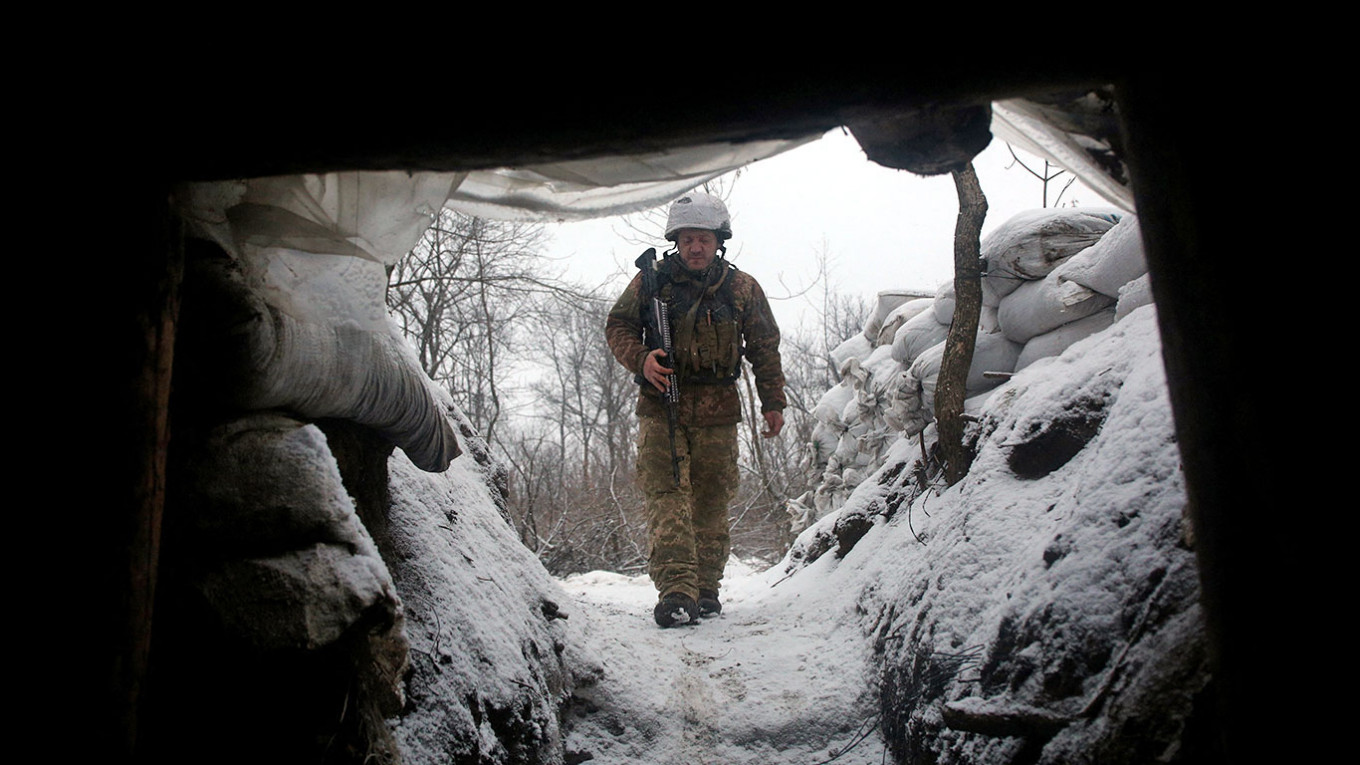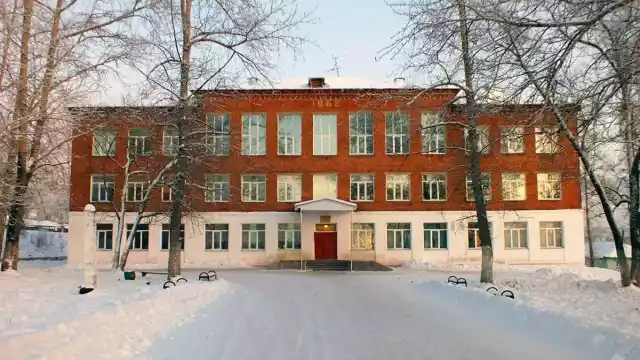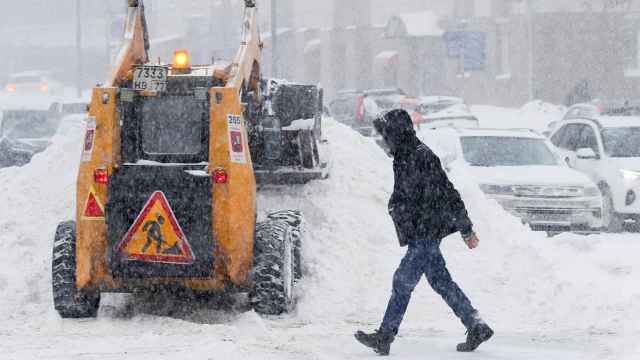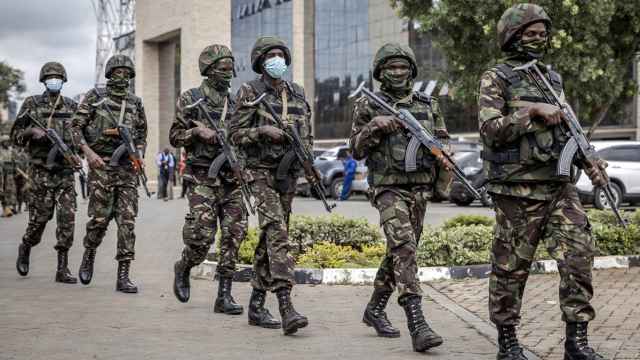As Western countries recall diplomats from Kyiv amid fears of a Russian invasion of Ukraine, The Moscow Times asked experts what likely scenarios could emerge in the coming weeks.
Here’s our roundup:
Annexing the Donbas
Annexing the Donetsk and Luhansk People’s Republics — unrecognized states proclaimed by pro-Russian separatists in East Ukraine’s Donbas region in 2014 — has been a constant of Russia’s political agenda.
Vocal supporters of the idea include RT editor-in-chief Margarita Simonyan and leaders of the loyal “systemic” opposition parties in the State Duma.
In December, President Vladimir Putin accused Ukraine of committing “genocide” against the local Russian-speaking population.
Such comments could provide a pretext for formally deploying Russian troops to the Donbas, perhaps seizing the parts of Donetsk and Luhansk regions controlled by Kyiv.
A Ukrainian diplomat who wished to remain anonymous told The Moscow Times that the introduction of troops to the Donbas might be a first step for Russia, which would then gauge Western reaction before moving further.
Though Russian forces are widely believed to have been present in the Donbas since the earliest days of the spring 2014 uprising, Russia has always denied its involvement in the region.
Moscow maintains that the war in Donbas is an internal Ukrainian conflict, and that it has no troops deployed in the territory.
For the Donbas People’s Republics, which have always stated their desire to join Russia over independence, official recognition could well be a prelude to Crimea-style annexation by Russia.
However, annexing the Donbas would mark a sea-change in Russian strategy toward Ukraine, which has counted on the territory’s eventual reincorporation into Ukraine.
Under the 2015 Minsk Agreements, which ended full-scale war in the Donbas, the region was to receive broad autonomy within Ukraine, which Moscow hoped would serve as a veto on Kyiv’s pro-Western ambitions.
"Limited Operation"
A second possible scenario is a so-called “limited operation.”
Falling short of a full-scale invasion, this option would see Russia refrain from occupying territory and instead focus on dealing a short, sharp defeat to the Ukrainian army.
This option attracted some attention after Joe Biden appeared to suggest that Washington would react less harshly to a limited incursion than to an all-out war.
A model for such an operation could be Russia’s August 2008 war with Georgia, when a Georgian attack on the breakaway province of South Ossetia prompted a massive Russian attack which quickly defeated the Georgian army and briefly occupied much of the country.
In the Ukrainian case, said Mark Galeotti, an analyst at the UK’s Royal United Services Institute think tank, such an operation would be aimed at demonstrating Russia’s ability to defeat Kyiv’s armed forces, while also exposing the West’s inability to help.
“It would be a way of getting Ukraine to think again about Minsk-2,” said Galeotti, referring to the stalled peace process Moscow imposed on Kyiv after its forces routed Ukraine’s from the Donbas in 2015.
But while such an operation would spare Russia the costs of long-term occupation of a hostile population, it might not result in its desired goals being achieved.
With Moscow having made clear that its primary goal remains a brand new settlement keeping Ukraine out of Nato, the example of Georgia — where military defeat did not fundamentally change the country’s pro-Western orientation — may look less attractive.
“The issue at stake here is Ukraine as such,” said Berlin-based Donbas analyst Nikolaus von Twickle, who suggested that Moscow’s goals outstrip a limited incursion.
“Ultimately this is about whether Kyiv is pro-Western or pro-Moscow,” he said.
Full invasion
Experts believe a full-scale invasion of Ukraine is the least likely of the possible scenarios.
Though Russia has deployed around 175,000 troops along the length of the Ukrainian border, an all-out offensive — which would likely involve storming large cities including Kharkiv, Kyiv and Odesa — would likely come at enormous cost to the Russian army, and incur the harshest possible sanctions from the rest of the world.
“The Russian army has always struggled in cities. Just look at Grozny,” said Galeotti, the Chechen capital, which was devastated by air bombardment after Russian troops failed to take it.
For Galeotti, a similar attack on Kharkiv or Kyiv is much harder to imagine, given the cultural proximity that many Russians feel with Ukrainians.
Though U.S. and British intelligence have claimed that Russia is lining up pro-Moscow Ukrainian politicians to head a new administration in Kyiv — presumably after a successful bid at regime change — experts have cast doubt on the idea.
However, the enormous difficulties that an invasion would entail does not necessarily rule out the prospect altogether.
With Putin himself deeply personally invested in the Ukrainian question, and his decision-making privy only to a handful of top advisors, the Russian president may be underestimating the resistance that a Russian attack would meet in Ukraine.
“Moscow has repeatedly shown that it has a very limited ability to understand what is going on in Ukraine,” said Galeotti, who drew an analogy with the Soviet Union’s war in Afghanistan, which was opposed by the U.S.S.R.’s political leadership, and opposed by its military top brass.
“A lot depends on the quality of briefing in Moscow,” Galeotti added.
Unconventional War
One way for Moscow to pressure Ukraine without the downsides of open combat would be through unconventional methods, including escalated cyber and psychological warfare.
On Monday, an article in the Ukrainska Pravda newspaper by a group of Ukrainian military experts argued that Russian troop numbers on the border had not reached the required level for an all-out offensive, and that in the immediate term escalated cyberwarfare from Moscow was more likely.
“A full-scale invasion to capture most or all of Ukraine in the near future seems unlikely,” they wrote.
Instead, they described a scenario in which Russia escalates disinformation and cyberwarfare to soften up Ukraine before an eventual attack.
Earlier this month, a major cyberattack on Ukrainian government facilities was blamed on Belarusian hackers, possibly acting with Russian support.
However, the extent to which such “hybrid” warfare tactics could achieve Moscow’s goal of bringing Ukraine back into its fold is unclear.
With Russia’s goals of forcing fundamental political change on Kyiv likely requiring either a deal with Washington or some level of military conquest of Ukraine, hybrid warfare may only get Moscow so far.
“The country must prepare for war,” wrote Ukrainska Pravda. “This is the main thing.”
A Message from The Moscow Times:
Dear readers,
We are facing unprecedented challenges. Russia's Prosecutor General's Office has designated The Moscow Times as an "undesirable" organization, criminalizing our work and putting our staff at risk of prosecution. This follows our earlier unjust labeling as a "foreign agent."
These actions are direct attempts to silence independent journalism in Russia. The authorities claim our work "discredits the decisions of the Russian leadership." We see things differently: we strive to provide accurate, unbiased reporting on Russia.
We, the journalists of The Moscow Times, refuse to be silenced. But to continue our work, we need your help.
Your support, no matter how small, makes a world of difference. If you can, please support us monthly starting from just $2. It's quick to set up, and every contribution makes a significant impact.
By supporting The Moscow Times, you're defending open, independent journalism in the face of repression. Thank you for standing with us.
Remind me later.







